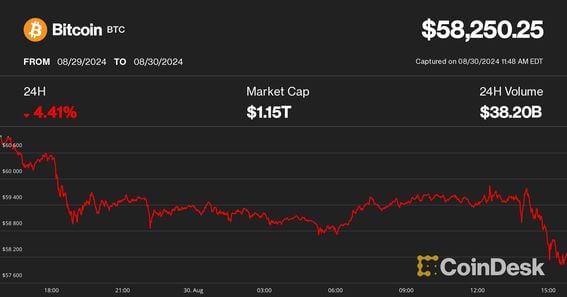The political landscape of Washington D.C. is witnessing an unprecedented surge in influence from the crypto industry. Major players like Coinbase, stablecoin giant Circle, and a16z, the crypto-focused arm of Andreessen Horowitz, are channeling significant funds into shaping pro-crypto legislation and influencing key political figures. Alongside them are high-profile venture capitalists and digital asset investors, including Ron Conway, Fred Wilson, and the Winklevoss twins, who are actively participating in this newfound political engagement.
The Rise of Crypto in Political Fundraising
This week marked a significant milestone, with Coinbase, Circle, and a16z contributing a colossal $78 million to Fairshake, a federal super PAC. This PAC, distinguished by its ability to accept unlimited funding from corporations and individuals for election spending, is dedicated to fostering “pro-crypto leadership.” This move underscores the industry’s commitment to depoliticize crypto and advocate for its benefits beyond being a tool for political rhetoric.
Faryar Shirzad, the Chief Policy Officer at Coinbase, emphasizes the need for a non-partisan approach to crypto, aiming to spark a public debate based on the technology’s merits. The formation of Fairshake is seen as a significant political advancement for an industry that has, up until now, been relatively modest in its political expenditures. While Coinbase is projected to spend only $4 million on lobbying this year, the heightened political atmosphere in Washington, particularly surrounding crypto, has necessitated a more robust approach.
Navigating the Political Headwinds
The growing scrutiny and criticism from crypto skeptics, notably Democratic Senator Elizabeth Warren, have been catalysts in this strategic shift. Recent developments, such as the letter sent by Senator Warren and other lawmakers to the White House and Treasury, call for stringent regulations on crypto activities, citing national security risks. This sentiment was echoed in Warren’s interview with the Financial Times, where she highlighted the allure of digital assets for illicit activities due to their unregulated nature.
The political environment has grown increasingly hostile towards crypto, especially following the controversies involving Sam Bankman-Fried, former CEO of FTX, and the admission by Binance of shortcomings in anti-money laundering measures. This scrutiny has intensified the urgency for crypto companies to seek political allies and shape a regulatory framework that accommodates the burgeoning digital asset market.
Fairshake’s creation is partly a response to the inaction of Congress in passing clear regulatory guidelines for crypto. The fines and penalties faced by companies like Binance this year are for violations of existing securities and money laundering laws, indicating a need for specialized crypto regulations.
Crypto’s recent scandals have even united traditional adversaries like Warren and the banking industry. Last December, Warren proposed a bill aligning crypto industry standards with traditional anti-money laundering obligations. Senator Roger Marshall, a co-sponsor of the bill, argues that law-abiding crypto entities should not fear these regulations, as they aim to hold crypto to the same standards as banks.
In response to these developments, the crypto industry is actively seeking new allies as another political cycle in Washington concludes. To date, Fairshake’s expenditures have been modest, but the focus is now on the upcoming elections. Orlando Cosme, founder and managing attorney at OC Advisory, views the increased lobbying efforts as a strategy to influence the election and ensure the election of pro-crypto candidates.
Bottomline the crypto industry’s escalated political donations in D.C. reflect a strategic shift to safeguard its interests and shape a favorable regulatory environment. As political dynamics evolve, the industry’s increased involvement in the political arena is a testament to its growing significance and the recognition of the need for a collaborative approach to regulation and policymaking.





